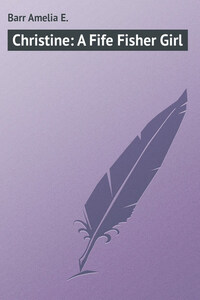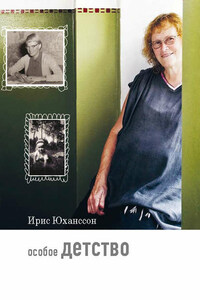CHAPTER I
FISHERS OF CULRAINE
The hollow oak our palace is
Our heritage the sea.
Howe’er it be it seems to me
’Tis only noble to be good.
Kind hearts are more than coronets
And simple faith than Norman blood.
Friends, who have wandered with me through England, and Scotland, and old New York, come now to Fife, and I will tell you the story of Christina Ruleson, who lived in the little fishing village of Culraine, seventy years ago. You will not find Culraine on the map, though it is one of that chain of wonderful little towns and villages which crown, as with a diadem, the forefront and the sea-front of the ancient kingdom of Fife. Most of these towns have some song or story, with which they glorify themselves, but Culraine – hidden in the clefts of her sea-girt rocks – was in the world, but not of the world. Her people lived between the sea and the sky, between their hard lives on the sea, and their glorious hopes of a land where there would be “no more sea.”
Seventy years ago every man in Culraine was a fisherman, a mighty, modest, blue-eyed Goliath, with a serious, inscrutable face; naturally a silent man, and instinctively a very courteous one. He was exactly like his great-grandfathers, he had the same fishing ground, the same phenomena of tides and winds, the same boat of rude construction, and the same implements for its management. His modes of thought were just as stationary. It took the majesty of the Free Kirk Movement, and its host of self-sacrificing clergy, to rouse again that passion of religious faith, which made him the most thorough and determined of the followers of John Knox.
The women of these fishermen were in many respects totally unlike the men. They had a character of their own, and they occupied a far more prominent position in the village than the men did. They were the agents through whom all sales were effected, and all the money passed through their hands. They were talkative, assertive, bustling, and a marked contrast to their gravely silent husbands.
The Fife fisherman dresses very much like a sailor – though he never looks like one – but the Fife fisher-wife had then a distinctly foreign look. She delighted in the widest stripes, and the brightest colors. Flaunting calicoes and many-colored kerchiefs were her steady fashion. Her petticoats were very short, her feet trigly shod, and while unmarried she wore a most picturesque headdress of white muslin or linen, set a little backward over her always luxuriant hair. Even in her girlhood she was the epitome of power and self-reliance, and the husband who could prevent her in womanhood from making the bargains and handling the money, must have been an extraordinarily clever man.
I find that in representing a certain class of humanity, I have accurately described, mentally and physically, the father and mother of my heroine; and it is only necessary to say further that James Ruleson was a sternly devout man. He trusted God heartily at all hazards, and submitted himself and all he loved to the Will of God, with that complete self-abnegation which is perhaps one of the best fruits of a passionate Calvinism.
For a fisherman he was doubtless well-provided, but no one but his wife, Margot Ruleson, knew the exact sum of money lying to his credit in the Bank of Scotland; and Margot kept such knowledge strictly private. Ruleson owned his boat, and his cottage, and both were a little better and larger than the ordinary boat and cottage; while Margot was a woman who could turn a penny ten times over better than any other woman in the cottages of Culraine. Ruleson also had been blessed with six sons and one daughter, and with the exception of the youngest, all the lads had served their time in their father’s boat, and even the one daughter was not excused a single duty that a fisher-girl ought to do.
Culraine was not a pretty village, though its cottages were all alike whitewashed outside, and roofed with heather. They had but two rooms generally – a but and a ben, with no passage between. The majority were among the sand hills, but many were built on the lofty, sea-lashed rocks. James Ruleson’s stood on a wide shelf, too high up for the highest waves, though they often washed away the wall of the garden, where it touched the sandy shore.
The house stood by itself. It had its own sea, and its own sky, and its own garden, the latter sloping in narrow, giddy paths to the very beach. Sure feet were needed among its vegetables, and its thickets of gooseberry and currant bushes, and its straying tangles of blackberry vines. Round the whole plot there was a low stone wall, covered with wall-flowers, wild thyme, rosemary, and house-leek.
A few beds around the house held roses and lilies, and other floral treasures, but these were so exclusively Margot’s property, and Margot’s adoration, that I do not think she would like me even to write about them. Sometimes she put a rosebud in the buttonhole of her husband’s Sunday coat, and sometimes Christina had a similar favor, but Margot was intimate with her flowers. She knew every one by a special name, and she counted them every morning. It really hurt her to cut short their beautiful lives, and her eldest son Norman, after long experience said: “If Mither cuts a flower, she’ll ill to live wi’. I wouldna tine her good temper for a bit rosebud. It’s a poor bargain.”














